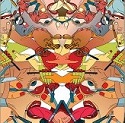|
quote:Our social networks are broken. Here's how to fix them.
|
|
|
|

|
| # ? Apr 25, 2024 17:11 |
|
Never got a twitter. No regrets.
|
|
|
|
I've got my double-barreled attention ball hat on and I'm blastin' away at this thread 
|
|
|
|
emfive posted:I've got my double-barreled attention ball hat on and I'm blastin' away at this thread I stopped reading halfway. Is this attention marbles 3.0?
|
|
|
|
what about those of us who don't use facebook or twitter
|
|
|
|
|
Nevvy Z posted:I stopped reading halfway. Is this attention marbles 3.0? You even need to ask?
|
|
|
|
I skimmed at best, being unwilling to assist Eripsa in acquiring food and shelter.
|
|
|
|
These threads usually have assholery for the first couple of pages and then real discussion begins, right?
|
|
|
|
agreed.
|
|
|
|
Well yeah. You think this is Reddit?
|
|
|
|
Kane posted:These threads usually have assholery for the first couple of pages and then real discussion begins, right? You'll be able to tell when it gets good just by counting the marbles.
|
|
|
|
The solution to social networks is to turn them off and realize they're a poor substitute for actual human contact and interaction.
|
|
|
|
Kane posted:These threads usually have assholery for the first couple of pages and then real discussion begins, right? Paying attention to Eripsa is literally taking food out of the mouths of other, more deserving content creators.
|
|
|
|
quote:We need to realize that a half a million human bodies walking down a street with cell phones and hand written signs still have more political power than 10+ million strong Facebook groups or Twitter streams. We still live in an age where an afternoon walk with a few like-minded people can outrun the social influence of a digital collective an order of magnitude larger. You might have expected a digital population to overwhelm our naked ancestors, but if anything the opposite has proven true. When TwitchPlaysPokemon rallied 1.16 million people to beat Pokemon in 16 days, everyone who participated recognized that we accomplished an amazing thing.
|
|
|
|
It's that magical time of the year! we missed you, buddy
|
|
|
|
|
No way you bastard. Please promise me you'll hang around until I get off work.
|
|
|
SedanChair posted:No way you bastard. Please promise me you'll hang around until I get off work. anyone who chases away our beautiful unicorn of a poster will be dealt with accordingly
|
|
|
|
|
So I should make a google plus account?
|
|
|
|
I will literally eat poo poo for attention. give me poo poo
|
|
|
|
Oh, how I have missed you. Sing now the song of Strangecoin, so that I may shake off the fetters of mediocrity and embrace my digital destiny.
|
|
|
|
Slanderer posted:Oh, how I have missed you. Sing now the song of Strangecoin, so that I may shake off the fetters of mediocrity and embrace my digital destiny. Which is more important to you: a current-generation smartphone, or a set of working kidneys?
|
|
|
|
Eripsa, I am probably one of the most sympathetic people to your goals you will find on these forums. While I think that a lot of your ideas are unworkable in the forms you present them, you do occasionally have a decent grasp on the problems you are attempting to fix. This... I get what you are trying to say, but you are saying it in a way that is so thick, for lack of a better word, that it becomes imperceptible to people. To put this in perspective, I opened this thread, saw a giant wall of text and scrolled down past it to see what the gently caress it was, because even with all my free time I'm not going to bother to read someones treatise on social networking. To put it in your own terms, this does not hold my attention. I've read it twice now, after scanning the rest of the posts (and thus having my opinion of it altered before I even regarded it in its own right) I'm still almost at a loss for what you are actually trying to get at. You are using way too many words and metaphors to express your content, to the point where the actual important arguments get completely lost in repetition of how social networks are like homes. Brevity is not only in the domain of wit. As mentioned above, I'm one of the people most likely to actually read and accept your post, and it is genuinely hard for me to figure out what the hell you are talking about, what problems you are discussing, what solutions you are suggesting. I am not trying to be rude, but as an attempt to communicate your ideas, this is more failure than success. Here is what I take away from your post: - Social networks are broken (its in the title) - Networks are broken due to central authority, and a focus on advertising. This focus causes them to not be responsive to user 'attention'. Which is bad. - Current Social Networks lack any method of reputation tracking beyond followers and likes. This is true enough, though I'd argue there are tons of problems with reputation systems. - Social networks are more like a house than a roledex. Now what little I managed to successfully glean from this just leaves me with further questions, and leaves me skeptical to boot. For example, I think you horribly overestimate what people actually want out of their social networks. It also leaves me wondering if you're a little too into Daniel Suaraz' Darknet series, but that is neither here nor there. The biggest question I have is this however. Why change the ending? Did we get a draft version? Or are you conciously aware enough to realize that the ending of the piece you linked wouldn't play well: quote:But that’s about to change. People are obviously thinking about the next generation of social networking, and for the last few weeks I’ve been working with a team of developers on a distributed networking service built on the block chain, one that bakes security, reputation, and community management directly into the basic feature set. We’re set to announce within the next few days, when I hope to tell you much more about the details of the project. Until then I hope the comments here give some insight into our philosophical approach to the design. quote:But that’s about to change. People are starting to think about the next generation of social networking, and how it will impact the next generation of social and political life. A generation of kids raised on social networks are beginning to redesign them in fundamental ways to fit our lived experience as digital persons, and to carve out something that feels just a little more like home. We can only imagine the future that we will build. I've bolded the part I think concerns most people. Judging from the changes, I suspect its just because one is a treatise/announcement and the other is you attempting to solicit comment. Caros fucked around with this message at 21:58 on Oct 16, 2014 |
|
|
|
this is the thread where i admit that i lie constantly to facebook to gently caress up their sales algorithm also i skimmed the OP, suck it
|
|
|
|
Here's what I got from the piece, organized by where I found it: 1(a) - The members/users of online social networks, not the corporate owners, are responsible for the value created by online social networks. 1(b) - Online social networks have not been used very effectively to achieve positive social change. 1(c) - This means there is something wrong with them as things stand. 2(a) - People organize their social activity online by coalescing into smaller social environments with rules/norms producing an atmosphere they comfortable. 2(b) - These environments develop with ties to monolithic entities that use and manage those environments to their own ends. 2(c) - The use and management of those environments by those entitites prevents or significantly impairs their utility for organizing to achieve positive social change. 3(a) - The larger a social network, the more any central management must homogenize content and interactions of members. 3(b) - The involvement of managing entities necessarily changes the character of the social interactions in an undesirable way, because people are forced into predefined social roles/identities. 3(c) - Things would work better if users of online social networks had more/total control of their own data and the infrastructure of their social networks, because social interactions would better reflect their individual situation and preferences, and thus be more satisfying and useful. 3(d) - "We have no other tools for judging the success of our activity online except in terms of raw audience size." 3(e) - This is because the general user lacks power to do anything, and so must hope for catching the attention of someone with it. 3(f) - That's a poor way to handle local or non-immediate problems. 3(g) - The distribution of attention within a social network is used by members to determine their own participation. 3(h) - Users want the social network to be changed by their participation in a way that reflects the content generated by that participation. 3(i) - That doesn't currently happen, because the social networks are structured to generate content for entities that aren't participating community members (advertisers). Fair summary? eviltastic fucked around with this message at 22:49 on Oct 16, 2014 |
|
|
|
What the gently caress is an attention ball? Google reveals nothing.
|
|
|
|
Freakazoid_ posted:What the gently caress is an attention ball? Google reveals nothing. An alternate term for an attention marble. See here for some of the relevant background information necessary for full engagement with and enjoyment of this thread.
|
|
|
|
My social networks are working pretty well, actually, thanks for asking. Seriously, all I'm seeing is you not liking the way social networks are now, but are people actually really that disappointed in them that they'd want them to be changed, in whatever the way is that you describe (skimmed it, sorry)?
|
|
|
|
SedanChair posted:No way you bastard. Please promise me you'll hang around until I get off work. I'm so employed that I bought my old account back. I'm not going anywhere. LGD posted:An alternate term for an attention marble. See here for some of the relevant background information necessary for full engagement with and enjoyment of this thread. This. This is why I keep coming back here. It's not that I like you guys, it's that you have a memory. And with memory you get a culture, and a culture is something you can actually work with. The vast majority of internet culture is devoid of any real culture; they are more like crows parroting the sounds of the living. still tho <3
|
|
|
|
Adventure Pigeon posted:The solution to social networks is to turn them off and realize they're a poor substitute for actual human contact and interaction. I try to avoid any digital dualism in the article. It's not that physical networks are "real" and digital networks are "fake". Online interaction is real human interaction, in the same way that a junk car is still a real car. It's just all hosed up and doesn't work like a social network is supposed to work. It's like we're at a payphone that isn't hooked up to anything, but we keep checking it for dial tone anyway. In some sense we mean well, but we're dumb as rocks so it's hard to sympathize.
|
|
|
|
Caros posted:Why change the ending? Did we get a draft version? Your guess is right, I'm working with people who are about to announce a thing, and I wrote this as a propaganda piece to set the conceptual backdrop for what we're doing. Since I want to talk about the propaganda, and since the thing hasn't been announced, I changed it so as to not play coy. I ain't here to plug a thing. I'm here to talk marbles.
|
|
|
|
All those social network problems will be solved by Facebook Virtual Neighborhood -- Powered By Oculus. I can't wait to meet the people living on my hyperstreet!
|
|
|
|
eviltastic posted:Fair summary I wish I could hire you as an editor. Very fair. I suppose the crux of the essay is how our identities and communities are generated in constant feedback with each other. We're in a situation where a corporate entity is not only party to the everyday transactions that occurs between myself and my community, but can also disrupt and distort that feedback arbitrarily and for its own profit. I'm arguing that such a situation absolutely cripples the process of both community and identity construction. I'm also arguing that this isn't endemic to digital spaces. If we build our spaces to work like genuinely cooperative spaces, where we are encouraged both to construct our identities and communities alongside each other, then we can have digital spaces that can actually do productive social work. You know, the kind that builds great civilizations and repaisr climate disasters and explores the solar system and poo poo.
|
|
|
|
HE LIVES! Eripsa I am shooting so many marbles at this thread Ron Jeremy would be shocked
|
|
|
|
OP uses Google Plus, opinion on social networks is automatically in question.
|
|
|
|
Remember Diaspora? Yeah, me neither.
|
|
|
|
Oh my God, you guys, Eripsa is working with people who are about to announce a thing! Marbles++++++
|
|
|
|
NO
|
|
|
|
Absurd Alhazred posted:My social networks are working pretty well, actually, thanks for asking. People are thrilled about social networks because they are domesticated consumers who have no idea they are alive. I'm complaining about the fact that our social networks are really lovely at doing anything constructive. A successful kickstarter campaign can be a crapshoot, and there's no way to manage the overall distribution and concentration of crowdsourced funds and labor. If we imagine the digital citizens as a country, we're blowing our GDP on potato salad and indie games, which is a pretty lovely haul given the number of work-hours we've put in. A digitally-enhanced population, properly organized, should be able to steamroll it's paper ballot competition, the way Deep Blue can beat an abacus at chess. Instead we have a generation of people dumping ice water on their heads and feeling proud of themselves for doing something worthwhile. Whether or not they are entertained, they are letting the digital age pass them by.
|
|
|
|
Ello is a really exciting social network, because it won't sell your data to advertisers because their business plan is to remain unprofitable until another company can buy them just so they can acquire and exploit your data
|
|
|
|

|
| # ? Apr 25, 2024 17:11 |
|
If you count posting on Google+ and Reddit in terms of work hours, it's like Eripsa has been working three jobs instead of no jobs
|
|
|






















